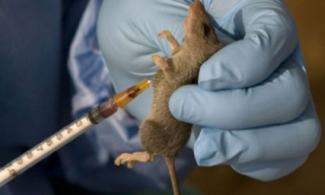By The9JaTREND
According to the latest epidemiological report by the Nigeria Centre for Disease Control and Prevention (NCDC), Nigeria has recorded a total of 168 deaths from Lassa fever so far in 2025,
NCDC report released disclosed that there was a rise in fatalities from 166 to 168, with the Case Fatality Rate (CFR) climbing to 18.5 per cent, compared to 16.9 per cent recorded during the same period in 2024.
This development comes as the World Health Organisation noted that Lassa Fever remains endemic in Benin, Ghana, Guinea, Liberia, Mali, Nigeria, and Sierra Leone.
As of epidemiological Week 38, Nigeria has reported 7,792 suspected cases and 906 confirmed cases across 21 states and 106 local government areas.
According to the NCDC, “In Week 38, the number of new confirmed cases remained the same as in Week 37 of 2025, with 11 reported cases. These were from Ondo, Edo, and Taraba states.”
“Cumulatively, as of Week 38, 2025, 168 deaths have been reported with a CFR of 18.5 per cent, which is higher than the CFR for the same period in 2024 (16.9 per cent).”
The report further noted that “in total for 2025, 21 states have recorded at least one confirmed case across 106 local government areas.”
Five states led in terms of confirmed infections, according to data from
the NCDC.
The states were listed as Ondo (33 per cent), Bauchi (23 per cent), Edo (18 per cent), Taraba (13 per cent), and Ebonyi (three per cent). These five states accounted for 90 per cent of all confirmed cases, while the remaining 10 per cent were spread across 16 other states.
The NCDC also highlighted that the most affected age group falls between 21 and 30 years, with patients ranging from one to 96 years and a median age of 30.
The male-to-female ratio among confirmed cases stands at 1:0.8.
It is said that Lassa virus is primarily transmitted to humans through direct or indirect contact with the urine and faeces of infected multimammate rats.
